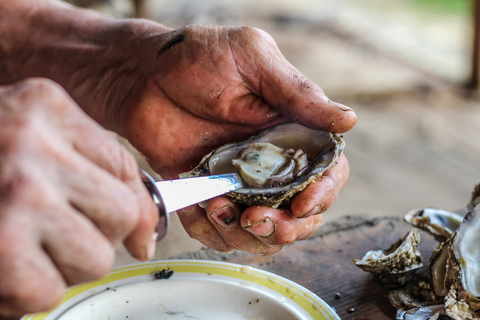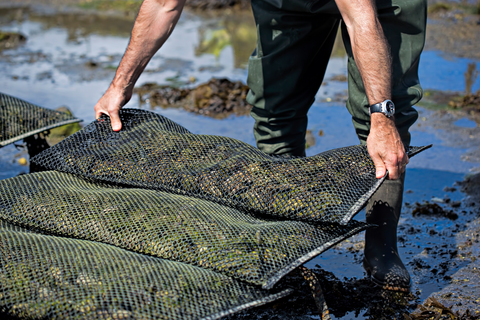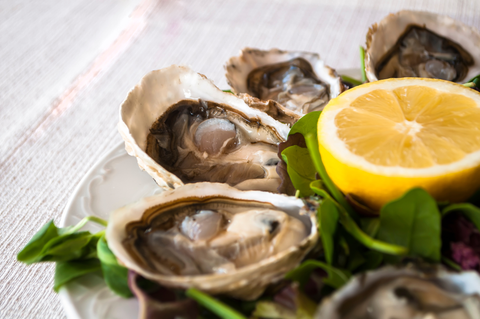Oysters have long been considered a delicacy in many cultures, but are they actually good for you? The answer is a resounding yes! These mollusks are not only a mouth-watering dish but also offer a variety of health benefits. In this post, we'll dive into the nutritional profile of oysters, discuss some of their numerous health benefits, and explore the many ways you can enjoy this delicious seafood.
Nutritional Profile of Oysters
Oysters are rich in nutrients and they pack a powerful punch in terms of vitamins and minerals. They contain high amounts of zinc, which is crucial for immune system function, wound healing, and maintaining a sense of taste and smell.
Other essential nutrients found in oysters include Vitamin B12, Vitamin D, iron, copper, and selenium. These nutrients contribute to various bodily functions including maintaining healthy blood cells, improving bone strength, and supporting the immune system.

Health Benefits of Eating Oysters
- Improving Heart Health: Oysters are a great source of Omega-3 fatty acids. These heart-healthy fats have been linked to lower blood pressure and reduced cholesterol levels, both of which contribute to a healthy heart.
- Boosting the Immune System: As mentioned earlier, oysters are high in zinc, which is essential for a strong immune system. In addition, they contain various other vitamins and minerals, such as Vitamin C and selenium, which help fortify the body's defenses against illness.
- Increasing Energy Levels: Oysters are an excellent source of B-vitamins, particularly Vitamin B12, which plays a crucial role in maintaining energy levels and preventing fatigue.
Oysters as an Aphrodisiac
Over the years, oysters have gained a reputation as an aphrodisiac. While there may not be definitive scientific evidence to fully support this claim, oysters do contain high levels of zinc, which has been linked to improved sexual function in both men and women. Plus, the ritual of consuming oysters can be seen as sensual and intimate, which may contribute to their aphrodisiac reputation.
It's true that oysters are one of the ocean's best date night seafood treats. If you're shucking at home, make sure to use a high quality oyster knife. Serve them with hot sauce, lemon, or mignonette (shallots and red wine vinaigrette), or our favorite: all three!
Oysters and Sustainability
Sustainability is one of the most important topics in the seafood industry. But while many commercial farming operations struggle to remain carbon-neutral, oyster farming is a regenerative farming practice that actually improves the environment, leaving a negative carbon footprint.
Unlike farm animals like cows and pigs, raising oysters does not require agricultural feed or special treatment. Oyster farmers simply run seawater through their tanks of oysters, and the oysters feed on the phytoplankton and algae that's naturally present in the water. Not only does the seawater naturally feed the oysters, but the oysters actually leave the water cleaner than it was before. This makes oysters one of the most sustainable foods on the planet.

Oyster farming (when done right) produces a negative carbon footprint, meaning that the process actually improves the environment. Oysters are nature's original carbon capture tools. Oysters purify the water they're in, and they even capture CO2 from the atmosphere. Ninety-five percent of oysters we eat are sustainably farmed in a way that benefits the environment, removing any concern of overfishing (the other five percent are typically wild caught).
Roger's Favorite Ways to Enjoy Oysters
Whether you prefer your oysters raw, steamed, baked, or even fried, here are some mouthwatering ways to enjoy this delicious treat:
- Raw Oysters: Shuck your fresh oysters and serve them on a bed of crushed ice. Pair your oysters with a refreshing mignonette sauce made from finely chopped shallots, red wine vinegar, and cracked black pepper.
- Grilled Oysters: Preheat your grill to medium-high heat. While the grill is heating up, shuck the oysters and place a small pat of garlic butter on each one. Carefully place the oysters (shell side down) on the grill and close the lid. Allow them to cook for 4-5 minutes, or until the butter is melted and bubbly. Serve with lemon wedges and crusty bread.
- Fried Oysters: Mix flour, cornmeal, salt, and paprika in a shallow dish. In a separate dish, whisk together an egg and a splash of milk. Dip oysters into the egg mixture, then coat them in the flour mixture, shaking off any excess. Heat vegetable oil in a frying pan and gently lower the oysters into the hot oil. Fry for 2-3 minutes, or until golden brown and crisp. Serve with tartar sauce.
- Steamed Oysters: Place a steamer basket in a large pot and fill it with 1 inch of water. Bring the water to a boil, then add the oysters and cover the pot. Steam for 5-7 minutes, or until the oysters open up and become plump. Serve with clarified butter and fresh herbs, such as parsley or chives. No matter how you choose to enjoy your oysters, you can be sure that you're getting a variety of essential vitamins and minerals that have numerous health benefits. So go ahead and give this delicious seafood dish a try - your taste buds (and body) will thank you!
- Oyster Stew: Sauté some finely chopped celery, onion, and garlic in a large pot with butter until soft. Add chicken broth or vegetable stock and bring to a simmer. Add the shucked oysters (and their juices) to the pot along with cream or half-and-half, diced potatoes, salt, pepper, Worcestershire sauce.

Oysters are a treat no matter how you enjoy them
No matter how you enjoy them, oysters are a delicious seafood that can provide various health benefits. Including them in your diet is an easy way to get more vitamins and minerals, improve heart health, boost the immune system, and even increase energy levels. So the next time you're at the market or restaurant, don't be afraid to give these tasty mollusks a try!
